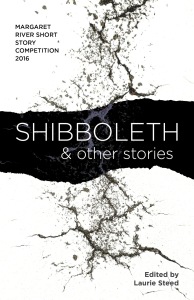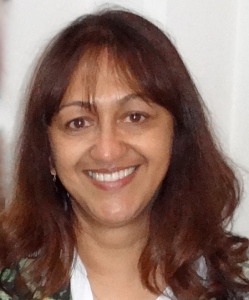This is the last of three posts featuring the group of Western Australian women writers who were my guests two years ago under the banner ‘The Next Wave’. It’s been a great pleasure to watch their development as writers since then, and to know them individually as the lovely women they are.
Here are Amanda Gardiner, Louise Allan and Kim Coull reviewing what these last two years have brought to their creative lives.
You can also read about Emily Paull and Michelle Michau-Crawford here; and Karen Overman and Rashida Murphy here.
Amanda Gardiner

Photograph by Sarah Mills
There have been a lot of changes in my life since I was featured as one of Amanda’s WA women writers to watch out for.
In 2015 I began work as a post-doctoral research fellow at the South West campus of Edith Cowan University. I love my job and it has given me the opportunity to pursue ideas that had been bubbling away in my imagination for years.
The work I am most proud of is an interdisciplinary research project called The Spaces Between Us that is based on my doctoral research into women who committed child murder in colonial Western Australia. As part of the project I invited six artists (including a composer) to engage with the 55 cases I had uncovered.
One of the results of the project is an exhibition that is being held at the Bunbury Regional Art Gallery throughout December 2016 and January 2017.
It is hard to do the type of work that I do. There is a lot of pain, and suffering and death. There is a lot of injustice and shame. It is a heavy weight to bear. So it is important to me to share what I do in ways that embody empathy, respect and compassion. Ways that invite questioning and a deep and nuanced understanding of context—of why people behave in the ways that they do.
And this is the intent of The Spaces Between Us, and the idea behind working with this group of artists.

For me, the resultant work has beome a form of bearing witness. Of not turning away. The exhibition allows us all to carry and hold the mothers and babies; to let them know they have not been forgotten and that we seek to find and evoke wisdom, compassion and social change through their trauma and suffering.
This past year working on the project has been a rewarding experience for me, and I have learned a lot from this talented group of people.

Serving It Up by Sarah Mills. Mixed media installation, 100 x 100 cm

Bird’s-eye view of the above
You can listen to me talking about the project on the ABC’s Books and Arts program.
Another achievement I am proud of is being a member of Westerly’s 2016 Writers’ Development Program. One of the most exciting things about being part of the program is that Susan Midalia is my writing mentor. I have had a literary crush on Susan for many years, and working with her on my Westerly piece has been such a rewarding experience—she always asks just the right questions.
Also:
I was the winner of the 2014 Magdalena Prize for Feminist Research.
In 2015 I received the second place award in the National 5RP (5 minute research pitch) Competition for my presentation ‘Sex, death and desperation: Infanticide in colonial Western Australia (1829–1901).’ You can watch it here.
I was also featured on Radio National’s The Science Show. You can listen here.
My PhD thesis was shortlisted for the Australian Women’s and Gender Studies Association (AWGSA) PhD Award in 2016.
And in 2016 I was Highly Commended in Shorelines (Bunbury’s writing for performance festival).
The cover of the catalogue for The Spaces Between Us features Helen Seiver’s adding absence. Photo by Lloyd-Smith Photographics
Watch a documentary on The Spaces Between Us (by Peacock Visuals) here
Louise Allan

Well, much has happened since the first series of ‘Next Wave’ blog posts two years ago.
Since then, the biggest development has been that Allen & Unwin will publish my novel in September 2017. I still have to pinch myself every day—I can’t imagine seeing my book on a shelf in a store, or in someone’s hands.
Going back to December 2014, and the news that my novel had been shortlisted for the 2014 City of Fremantle TAG Hungerford Award: it didn’t win, and although I was disappointed, it didn’t hurt as much or for as long as I thought it would. I took a lot of encouragement from the shortlisting—it meant that a group of independent and experienced authors had read my manuscript and decided it had merit. It meant I was on the right track.
I’m also quite philosophical about these things—I’ve had my share of disappointments, and I know that things happen when the time and place are right. So I told myself something even better was waiting in the wings.
After speaking with author and writing teacher Natasha Lester, I decided to seek an agent before looking for a publisher. I sent my manuscript to Lyn Tranter at Australian Literary Management, and a few weeks later, Lyn telephoned. She had a lot to say, most of it negative. My book needed a lot of work, not just a few tweaks here and there, but a major rewrite.
I was up for it. I stripped my book right back—if it were a tree, I’d say I took to it with a chainsaw, cutting not just the leaves and twigs, but the hefty branches, too, until all that remained was the trunk. Many paragraphs and even whole chapters were assigned to the trash and will never be seen on a page again. Indeed, the excerpt that I included in the December 2014 post here no longer lives! Then I added scenes back in, one by one. Some of them are nearly the same, with an added line or two that changes the emphasis, but many are totally new. I also rewrote the ending, and right up until the last few pages I had no idea how it would turn out. Hopefully, it will be a surprise for readers, too!
I believe my story is much better, much truer to my themes. There were parts of previous versions that even I didn’t like, but I didn’t know how to fix them. I needed someone with experienced eyes to tell me, and I’ll be forever grateful for Lyn’s feedback. I can’t overstate how helpful feedback from the right person is, and how important it is to heed that advice, especially for someone like me, a first-time novelist without a creative writing degree who was learning on the job.
Lyn accepted my rewritten novel and the first publisher she sent it to, Annette Barlow at Allen & Unwin, accepted it. I’m now waiting for the structural edits—I have no idea how extensive they’ll be or how long they’ll take, but, once again, I’m up for it.
Meanwhile, I’m trying to write Novel #2. My first few attempts were in third-person point of view, but they were abysmal. So I returned to my tried and true first person POV, and the words are flowing. It seems I write best when wearing the shoes of my protagonist.
One other thing: my novel is no longer called ‘Ida’s Children’ and I have no idea what the new title will be, so I can’t tell you what to look out for. Stay tuned…
Thanks, Amanda, for following up on this series. It’s only been two years—a short time, really—and look what’s happened in between. I hope the next two years are just as productive.
You can find Louise on her website, on Facebook, on Twitter, on Instagram or on Pinterest
Kim Coull

It is very still here this morning as I write this. Summer is creeping in. But I do love this last hurrah as the jacarandas break out. It’s about 11 am. The horse across the road is neighing. I never see this horse, although it keeps me company on the days I have time to sit and write. Like this morning.
In the last two years there has been a lot of space and in that space the heart of the game has deepened for me. Words have morphed into vibrations and back again. There’s been a great deal of silence and in that silence (paradoxically) I’ve found another well to plumb, or rather it has been like falling into an ocean and eventually finding myself washed up on a distant but vaguely remembered shore.
I’ve been time-travelling back into my music and writing songs. I made a harp recently. On it I carved the primal sound (although I’ve heard that may be only a secondary vibration to the initial ping). I have been interested in the healing value of Sanskrit and Gurmukhi and also language that creates soundscapes and vibrations, and I am applying this to the writing process. Over the past year, especially, from this intersection of sound, words, vibration and silence, I’ve written an album of songs that I plan to record in 2017.

I am also working on my book about art, narrative therapy and archetypes and hope to publish that next year as well as my poetry manuscript.
Some writing I have put away, understanding that it has served its purpose. Other writing is continuing to find voice in these varied ways. Perhaps getting older also makes you value silence and the nectar in the pause.
You can find Kim on her website









 Leaving Elvis and Other Stories
Leaving Elvis and Other Stories 
 Since I was featured as
Since I was featured as  My other writing project is a collection of short stories, which is currently titled Well-Behaved Women. It so far consists of ‘The Sea Also Waits’ (from Shibboleth and Other Stories), ‘Dora’ (Highly Commended in the 2016 Hadow/Stuart Award for Fiction) and ‘Miss Lovegrove’, which was shortlisted for the John Marsden/Hachette Australia Award for Young Writers at the end of 2015. I’ve been a fan of short story collections for a long time, and I hope that my collection can find a place in the incredibly high standard of collections currently being published in Australia.
My other writing project is a collection of short stories, which is currently titled Well-Behaved Women. It so far consists of ‘The Sea Also Waits’ (from Shibboleth and Other Stories), ‘Dora’ (Highly Commended in the 2016 Hadow/Stuart Award for Fiction) and ‘Miss Lovegrove’, which was shortlisted for the John Marsden/Hachette Australia Award for Young Writers at the end of 2015. I’ve been a fan of short story collections for a long time, and I hope that my collection can find a place in the incredibly high standard of collections currently being published in Australia.











